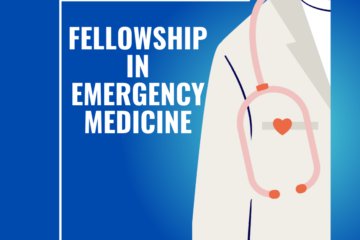
Becoming a cardiologist is a challenging yet fulfilling journey that requires years of rigorous training and unwavering dedication. For many physicians, the next step after residency is to pursue a fellowship in clinical cardiology. This specialized training is essential for those who aim to excel in cardiology, as it provides comprehensive knowledge, advanced skills, and hands-on experience necessary to manage complex cardiac conditions.
This blog delves into the importance of a clinical cardiology fellowship, the training it entails, and the career opportunities it presents.
The Importance of a Clinical Cardiology Fellowship
A fellowship in clinical cardiology is designed to deepen a physician’s understanding of cardiovascular diseases and enhance their ability to diagnose, treat, and prevent these conditions. Cardiovascular diseases remain the leading cause of death globally, making this specialization highly impactful. By undertaking a fellowship, physicians can:
- Gain Expertise: Fellows acquire advanced knowledge in various cardiology subspecialties, including interventional cardiology, electrophysiology, heart failure, and cardiac imaging.
- Develop Skills: Hands-on training in state-of-the-art procedures and technologies equips fellows with the skills to perform complex interventions and treatments.
- Engage in Research: Many programs emphasize clinical research, allowing fellows to contribute to advancements in cardiology and stay abreast of emerging trends and innovations.
- Improve Patient Care: With specialized training, fellows are better prepared to manage diverse cardiac conditions, leading to improved patient outcomes.
Structure of a Clinical Cardiology Fellowship
The curriculum is a blend of clinical practice, didactic learning, and research. Here’s a detailed examination of the components:
1. Clinical Rotations: Fellows rotate through various cardiology subspecialties, including:
- General Cardiology: Managing common cardiovascular diseases.
- Interventional Cardiology: Performing procedures like angioplasty and stenting.
- Electrophysiology: Treating arrhythmias through techniques such as ablation.
- Heart Failure and Transplantation: Caring for patients with advanced heart failure.
- Cardiac Imaging: Utilizing echocardiography, MRI, and CT scans for diagnosis.
2. Didactic Education: Regular seminars, conferences, and lectures cover the latest research, case studies, and advancements in cardiology.
3. Research Opportunities: Fellows often participate in clinical trials, contributing to the development of new treatments and technologies. This research experience is invaluable for those pursuing academic or research-oriented careers.
4. Mentorship and Collaboration: Fellows work closely with experienced cardiologists, gaining insights and guidance from leaders in the field. Collaborative projects and interdisciplinary teamwork are also integral to the training.
Choosing the Right Fellowship Program
Selecting the right fellowship program is crucial for aligning with one’s career goals and interests. Key factors to consider include:
- Program Reputation: Look for programs with a strong track record of training successful cardiologists.
- Faculty Expertise: The presence of renowned faculty members can enhance learning and provide valuable mentorship.
- Research Opportunities: For those interested in research, a program with robust research facilities and funding is essential.
- Clinical Volume and Diversity: Exposure to a high volume of diverse cases ensures comprehensive training.
- Location and Lifestyle: Consider the geographical location, cost of living, and work-life balance.
Career Opportunities After Fellowship
Completing a fellowship in clinical cardiology opens doors to various career paths, including:
- Clinical Practice: Many fellows join hospitals, clinics, or private practices, providing specialized cardiac care.
- Academic Medicine: Opportunities to teach and train the next generation of cardiologists while conducting research.
- Subspecialty Training: Further fellowship training in areas like interventional cardiology or electrophysiology for those seeking super-specialization.
- Leadership Roles: Fellows may pursue leadership positions within healthcare organizations, contributing to the strategic development of cardiovascular services.
- Research and Innovation: Engaging in cutting-edge research and working with medical device companies or pharmaceutical firms.
Conclusion
The fellowship in clinical cardiology offers a life-changing experience, providing physicians with the specialized knowledge and skills needed to excel in the field of cardiovascular medicine. This path requires unwavering dedication, genuine passion, and a firm commitment to continuous learning.
For those who pursue this journey, the rewards are profound, not only in terms of professional growth but also in the meaningful impact they can have on the lives of their patients. Choosing this path is a significant step toward achieving excellence and ensuring a future where heart health is nurtured by capable and empathetic cardiologists.



0 Comments